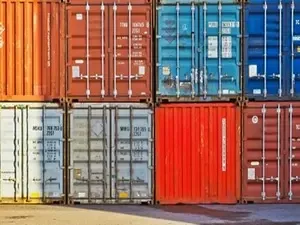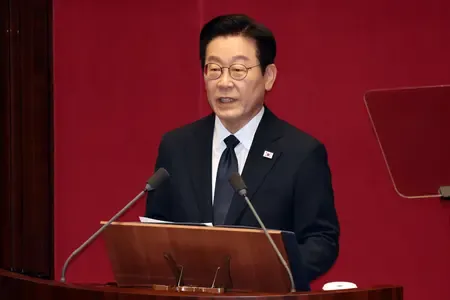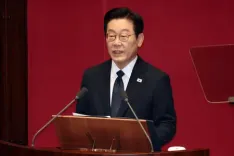South Korea to Develop Export Plans for All Scenarios Under Trump Administration

Synopsis
Key Takeaways
- South Korea is preparing export strategies due to potential U.S. trade policy changes.
- Concerns exist over the effects of U.S. protectionism on South Korean exports.
- Strategies are based on accurate data regarding potential U.S. measures.
- South Korea will collaborate with key partners for information sharing.
- Plans to expand export destinations by 2025 are underway.
South Korea, Jan 14 (NationPress) South Korea is poised to create customized strategies for various scenarios following potential shifts in U.S. trade policy after the inauguration of President-elect Donald Trump next week, according to the industry's ministry announcement on Tuesday.
"Should the United States enact detailed trade protectionism measures, it is likely that South Korea’s exports will face significant repercussions," the Ministry of Trade, Industry and Energy stated in a policy report.
"There is also apprehension that protectionist actions may trigger a chain reaction among major markets," it further noted, as reported by Yonhap news agency.
The ministry is currently devising strategies based on precise data to counteract potential moves by the Trump administration that could introduce protectionist measures aimed at countries with trade surpluses with the U.S.
Furthermore, South Korea will sustain a collaborative information-sharing network with key partners, including Japan, the European Union, Canada, and Mexico.
Trump has vowed to impose a 25 percent tariff on all products from Mexico and Canada, in addition to a 10 percent tariff on goods originating from China.
This proposal has sparked concerns among South Korean enterprises investing in Mexico and Canada, which depend on the U.S.-Mexico-Canada free trade agreement (FTA), also known as USMCA, for access to the North American market.
During a press conference, Industry Minister Ahn Duk-geun emphasized that South Korea's priority will be to ensure that the incentives given to South Korean firms under the Inflation Reduction Act are preserved, rather than the act itself.
The ministry has also indicated plans to broaden export destinations for South Korean companies by 2025.
As of the end of 2024, South Korea had 22 FTAs in effect, granting access to markets that constitute 85 percent of the global gross domestic product.
This year, the country intends to officially implement four additional FTAs signed with the Gulf Cooperation Council (GCC), the United Arab Emirates, Guatemala, and Ecuador, which are anticipated to elevate the market access ratio to over 87 percent.
The ministry also mentioned that Seoul will intensify trade discussions with Malaysia, Thailand, Mongolia, Bangladesh, and Serbia this year.










